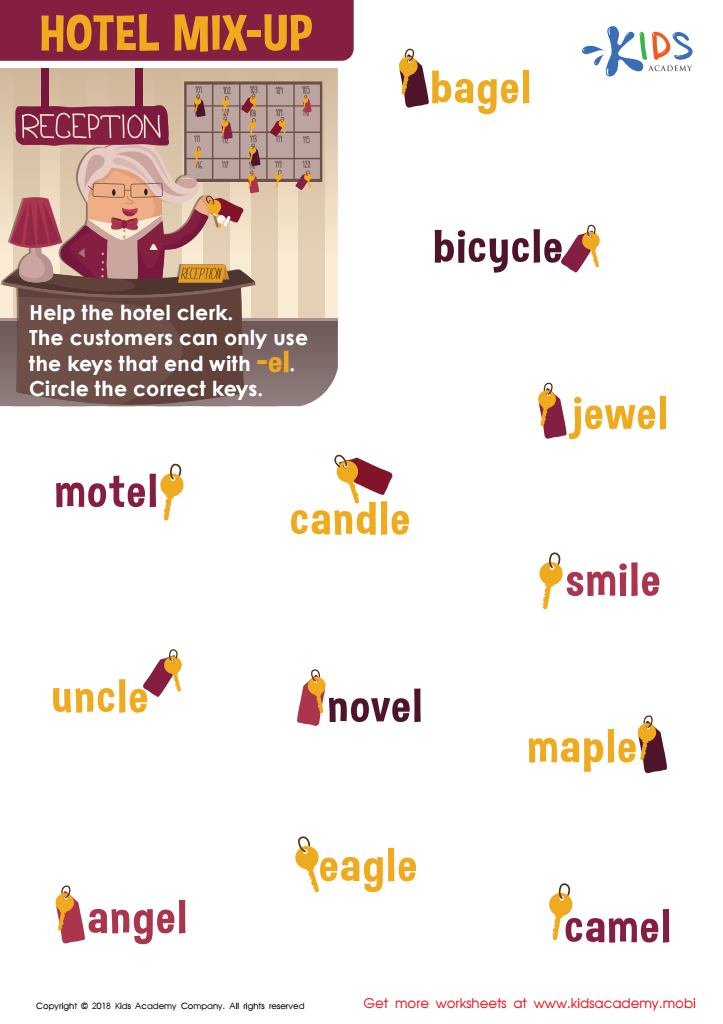Ending Sounds Worksheets for Ages 8-9
1 filtered results
-
From - To
Unlock the world of phonics for your child with our captivating Ending Sounds worksheets, meticulously crafted for ages 8-9. Dive into a comprehensive collection designed to bolster your child’s understanding and mastery of ending sounds, an essential aspect of their reading and spelling journey. Our engaging exercises not only reinforce phonetic skills but also enhance cognitive development, ensuring a fun and enriching learning experience. Perfect for both classroom and home settings, these worksheets are your child's stepping stone towards linguistic proficiency. Empower your young learner with the confidence to tackle any word, thanks to our Ending Sounds worksheets for Ages 8-9.


Hotel Mix-up Worksheet
Worksheets focused on Ending Sounds for Ages 8-9 offer a multitude of benefits in the realm of language arts, especially in the refinement and enhancement of reading and spelling skills. At this pivotal age, children are expanding their vocabulary and solidifying the foundational blocks of literacy that will support their academic journey moving forward.
The significance of mastering ending sounds cannot be overstated. It aids in the development of phonemic awareness—a critical component of reading fluency. By engaging with Ending Sounds worksheets, students aged 8-9 are encouraged to listen attentively and differentiate between similar-sounding words. This sharpens their auditory discrimination, a skill vital for both comprehension and pronunciation.
Furthermore, these worksheets serve as a practical tool for reinforcing spelling rules and patterns. Understanding the common endings of words helps children predict and memorize spelling structures, making them more confident and competent spellers. Additionally, this focus on ending sounds prepares students for more complex literacy tasks, such as rhyming, which plays a significant role in reading comprehension and creative writing.
Incorporating Ending Sounds worksheets into the curriculum for Ages 8-9 not only supports the immediate goal of improving literacy skills but also lays a robust foundation for lifelong learning and enjoyment of the written word.
 Assign to My Students
Assign to My Students













